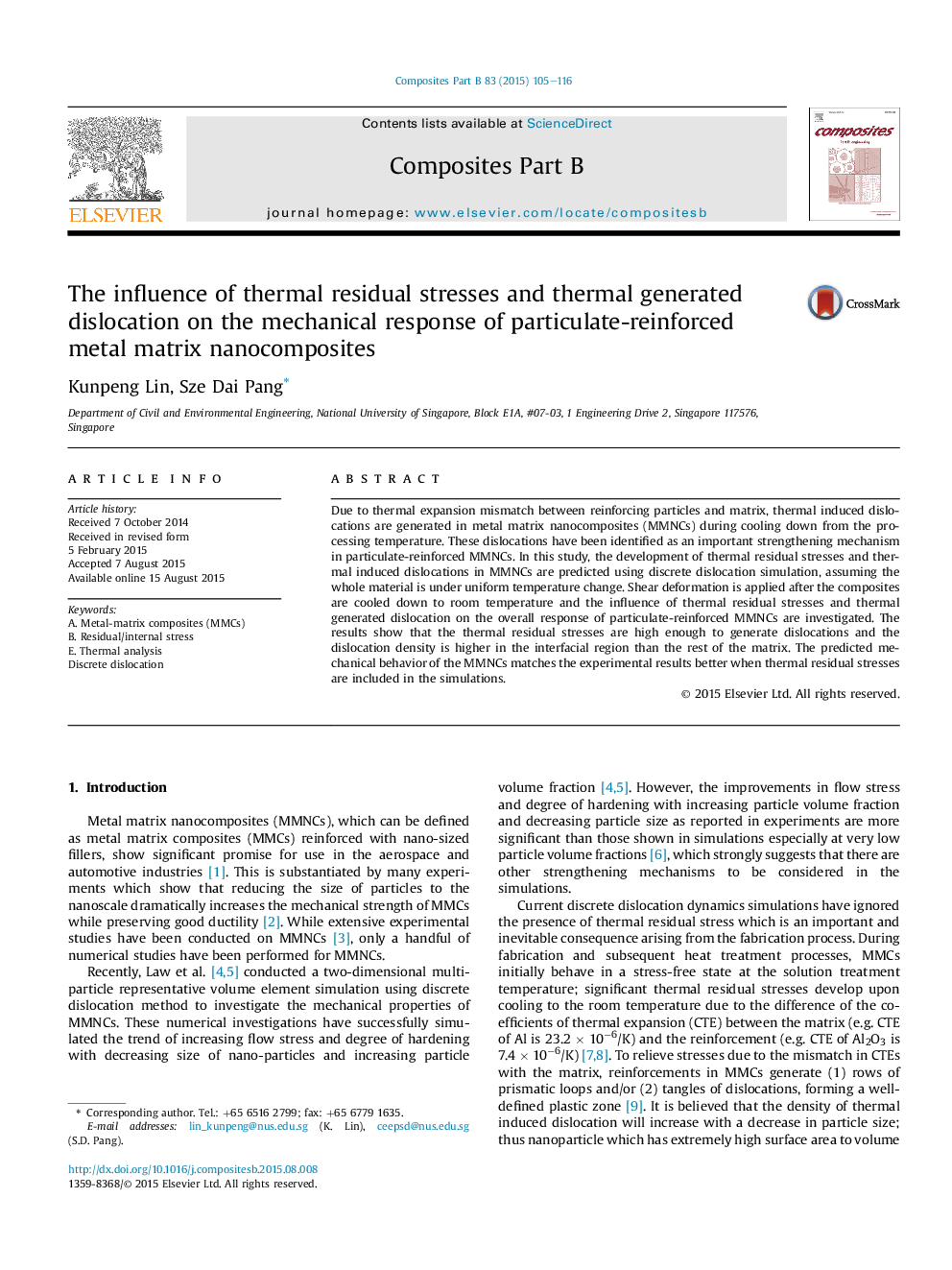| Article ID | Journal | Published Year | Pages | File Type |
|---|---|---|---|---|
| 817174 | Composites Part B: Engineering | 2015 | 12 Pages |
Due to thermal expansion mismatch between reinforcing particles and matrix, thermal induced dislocations are generated in metal matrix nanocomposites (MMNCs) during cooling down from the processing temperature. These dislocations have been identified as an important strengthening mechanism in particulate-reinforced MMNCs. In this study, the development of thermal residual stresses and thermal induced dislocations in MMNCs are predicted using discrete dislocation simulation, assuming the whole material is under uniform temperature change. Shear deformation is applied after the composites are cooled down to room temperature and the influence of thermal residual stresses and thermal generated dislocation on the overall response of particulate-reinforced MMNCs are investigated. The results show that the thermal residual stresses are high enough to generate dislocations and the dislocation density is higher in the interfacial region than the rest of the matrix. The predicted mechanical behavior of the MMNCs matches the experimental results better when thermal residual stresses are included in the simulations.
